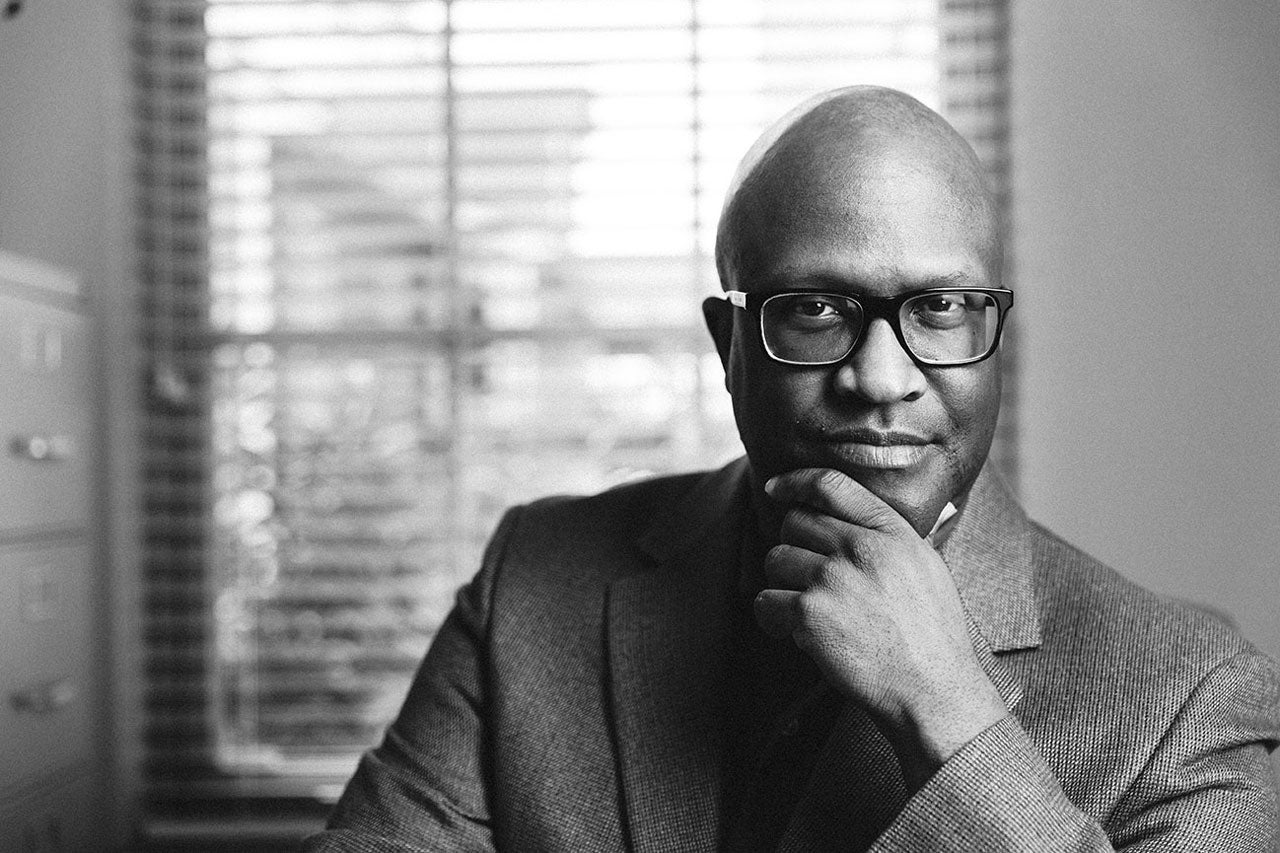As a young African American male growing up and attending public schools in Sumter, S.C., Kendall Deas saw firsthand how opportunities for advancement could be limited by race and socioeconomic status.
While Deas’ parents encouraged him to pursue a career in academia, a place where they believed he could best address some of the inequities he saw in his own community, Deas was also drawn to the performing arts. And deciding which way to go became even more difficult for Deas after the U.S. Presidential Scholar in Arts Program recognized him for vocal performance and professional dance.
Ultimately, he says, his parents prevailed: “I turned down music scholarships for vocal performance because I decided that I would have a stronger impact and make a greater difference going into academia.”

Photos by Kip Bulwinkle Education Professor Kendall Deas wants to address the academic disparities within public education.
After hanging up his dance shoes, Deas went on to earn several academic degrees from institutions such as Georgetown University, Dartmouth College and Washington University in St. Louis. He came to the College of Charleston in 2013 as an adjunct professor in the School of Education, Health, and Human Performance. He also serves as a faculty advising fellow in the Honors College and as a member of the Faculty Advisory Committee to the President.
But he hasn’t completely given up his pursuit of the arts, and performing as a vocal soloist with three different choirs is what brings balance to his life.
“My penchant for the performing arts kept me focused and disciplined as I reached academic and professional goals,” says the former Fulbright scholar who earned a doctorate in educational administration and policy from the University of Georgia.
An expert in education policy research, Deas is focused on addressing disparities that exist in schools, especially Title I schools that have high percentages of children from low-income families. Many of these children share the same tenacity and drive that helped Deas to succeed, but they often lack the support network that Deas believes was essential for him to reach his full potential.
Lately, that potential seems to have no limit: Deas was recently named a 2016–17 New Leadership Academy Fellow by the University of Michigan-Ann Arbor and its National Center for Institutional Diversity. The fellowship program helps prepare senior-level faculty and administrators to eventually assume top leadership positions in higher education.
On the heels of the fellowship announcement, he received more good news. At the annual ExCEL Awards ceremony honoring members of the campus community for promoting diversity and excellence, Deas was named Outstanding Faculty of the Year for both the School of Education, Health, and Human Performance and Honors College.
To Deas, such accolades are indications that he chose the right career path. The way he sees it, the higher he climbs the academic ladder (he has his sights set on becoming a university president) the more opportunities he’ll have to impact education policy in the U.S., particularly in his home state of South Carolina.
As a role model for young people at the College as well as in local community organizations and schools, Deas is already seeing his positive influence – particularly in the reactions of young men when they learn he is a college professor.
“I tell them that I am a product of South Carolina public schools and that ‘you can do this, too,’” he says.
And that’s true whether they aspire to perform on a stage or become leaders in higher education.




